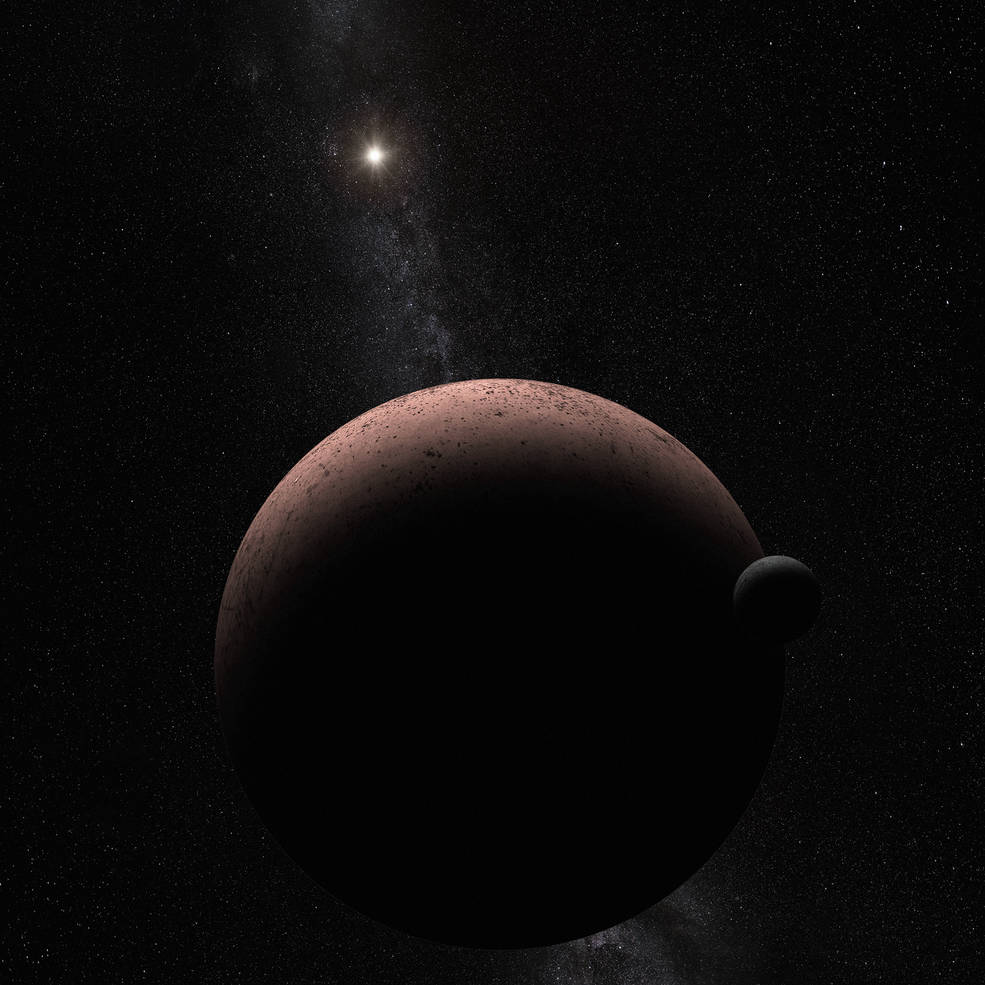There is a whole world, besides the small cabotage of classical astronomy, that of a school textbook. And that’s exactly what fascinates me most. I’m curious about what is in the shade, what is not in the spotlight. We never, never or almost never think about. Because there is a world, indeed there are endless worlds, beyond that limited set of things that usually occupies our mind.
Makemake is exactly part of these endless worlds, almost always out of our heads. In size, it represents the second dwarf planet in the Kuiper belt, so it is not exactly the latest addition, so to speak. The band is occupied by a very large number of objects: more than a thousand have already been discovered, but it is believed that there can be a hundred thousand objects with a diameter greater than 100 km. Think about it? One hundred thousand large stones that wander silently in a vast space. The largest of all is Pluto, as we know. What was once considered a planet in all respects, long derubricated to a dwarf planet.

Crediti: Alex H. Parker (Southwest Research Institute)
Makemake here it is, it comes immediately after Pluto. And the interesting thing is that it is still large enough to own a moon of its own. Called in code MK2, Makemake’s moon “reflects” sunlight from a dark surface like coal, thus resulting quite inefficient as a night light: if ever on Makemake someone was looking for romantic nights softly lit by the moon, he would be extremely disappointed.
MK2 has appeared only recently in astronomers’ notebooks: it was discovered in 2016, thanks to the outstanding resolving power of the Hubble Space Telescope. It appears much smaller than the dwarf planet around which it orbits, since it boasts a diameter of about 160 km, against the 1400 km of Makemake. However respectable dimensions, for extremely interesting environments to investigate. Lost in deep space, anyway: to understand each other, the Sun is fifty times further from Makemake than it is compared to Earth. If a photon that comes out of our star reaches us in about eight minutes, it takes more than an hour to travel to Makemake. At three hundred thousand kilometers per second, you understand what kind of distances we are talking about.
Thinking about these distant worlds, I get lost. Hundreds of small planets, thousands of kilometers of surface, mountains and valleys, which we will never see, we will never explore. Still, there are. They exist. I confess, I find it hard to think about the existence of something that nobody can look at. At the unfolding of incredible phenomena, on huge scales (such as storms on Jupiter), which have no spectator at all. Maybe it’s an anthropocentric point of view, but if I reflect on everything that is happening in the cosmos and that nobody will ever see, really the thought hesitates, a sense of mystery grasps it. Briefly, I am stunned.
We never, almost never think of space. Yet we are immersed in it. It is not strange? We have an imagination that always remains on the ground level, it normally proceeds to zero lift. At most every now and then we say well, there are the stars up there. As if it were just a frame. Something that is the background. Instead, we are immersed in a vortex of bodies and situations of which the Earth is barely a pale blue dot. We are in a terrible and beautiful cosmic dance, but we never think about it.
If I write it here, it is because I think one of the most important and also urgent tasks of an astronomer, today, is not so much to bore people with meticulous and pedantic explanations of some physical or astrophysical mechanisms, but first that of bringing people back into the cosmos. Because every unrecognized truth, every removal, is psychologically harmful. If we drastically narrow the point of view by removing the space, the sky (which contains almost everything) there is truly little room left but, above all, we make a choice so categorical that even what remains – downstream of the cut – no longer shows a balance point.
Makemake is ordinarily out of the spotlight, it is not brought up in the breaking news in websites where astronomy is normally used to try to monetize a little attention, before immediately moving on to something else. That’s exactly why it’s important. It makes you understand how much abundance of panoramas and situations there are, how many incredible things are happening, just a little out of here, beyond our courtyard.
👍👍